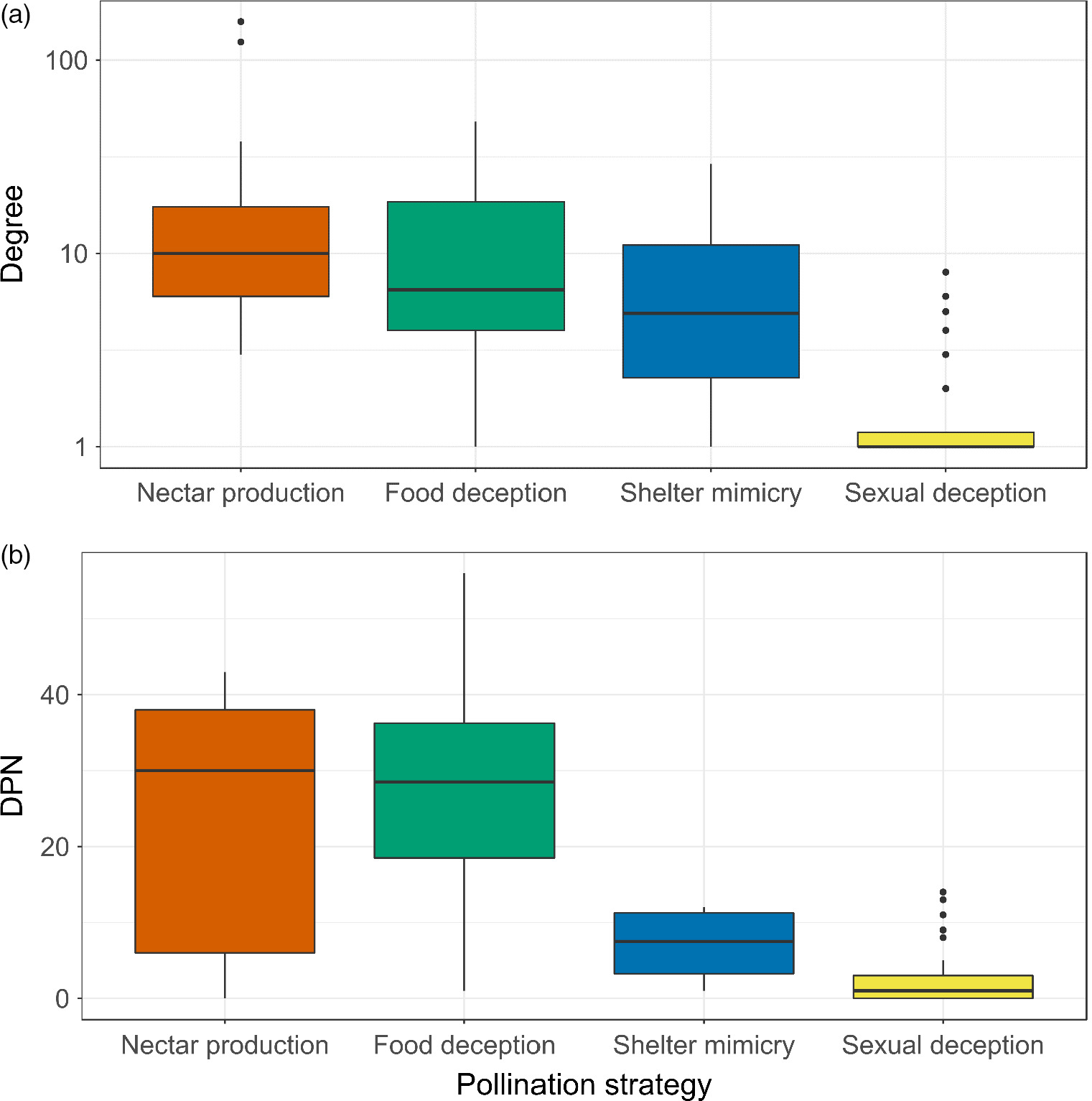
Effect of pollination strategy, phylogeny and distribution on pollination niches of Euro‐Mediterranean orchids
Abstract
- Pollination niches are important components of ecological niches and have played a major role in the diversification of Angiosperms. In this study, we focused on Euro‐Mediterranean orchids, which use diverse pollination strategies and interact with various functional groups of insects. In these orchids, we investigated the determinants of pollination niche breadth and overlap by analysing the orchid–pollinator network and the factors that may have shaped it.
- We constructed a database reporting 1,278 interactions between 243 orchid and 773 pollinator species based on a thorough literature review. We then focused on 153 orchid species for which phylogenetic data were available. We used Bayesian phylogenetic mixed models to study the relationship between specialisation (as estimated by the degree and degree in the projected network), pollination strategy and breadths of orchids’ spatial and temporal distributions, while correcting for the effect of phylogenetic relationships among orchid species and sampling effort. We then used a singular value decomposition of the orchid–pollinator matrix combined to a redundancy and variation partitioning analyses to investigate the determinants of similarity in pollination niches between orchids.
- Specialisation was higher in deceptive than in nectar‐producing orchids and decreased with the breadth of orchids’ spatial distribution. When interactions were considered at the insect family level, similarity in pollination niches between orchids was solely explained by their pollination strategy and phylogeny. By contrast, when they were considered at the insect species level, this similarity was primarily explained by their geographical range and flowering time, although other factors had significant effects as well, with orchids using the same pollination strategy, being closely related and growing in the same habitats sharing more insect species than expected.
- Synthesis. Specialisation in orchid–pollinator interactions depends on orchids’ pollination strategy and geographical range. The pool of insect families with which orchids interact depends on their pollination strategy and phylogeny, with consistent associations between some functional or phylogenetic groups of orchids and some families of pollinators. By contrast, the pool of insect species with which orchids interact depends on their spatio‐temporal distribution, suggesting that at a finer scale, orchid–pollinator interactions are more opportunistic than previously thought.
Type
Publication
Journal of Ecology
Date
May, 2018